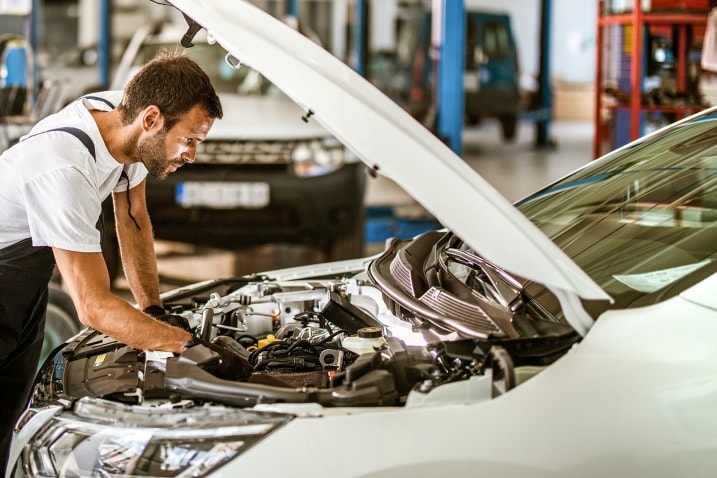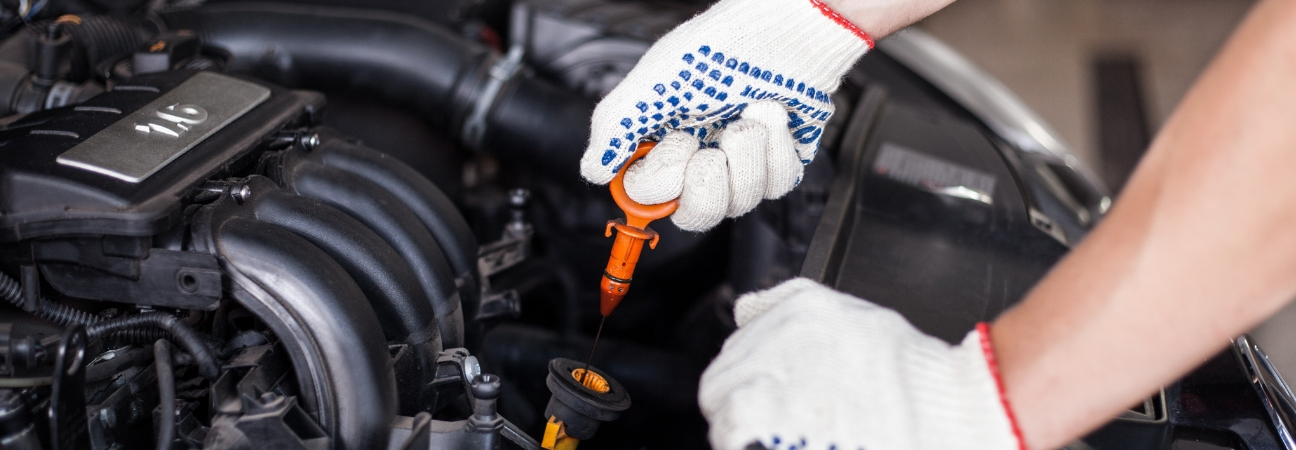All Categories
Featured
Understanding the indicators that your car needs brake repair service is essential for preserving both safety and security and the long life of your car. In this blog site, we'll talk about the typical indicators that indicate your brakes need attention and just how to attend to the issue quickly.
![]()
How to Resolve It: If you notice squealing or screeching, have your brake pads evaluated and changed if required. Addressing this problem without delay will prevent further damage to other brake components, such as the rotors.
Just How to Resolve It: If you listen to grinding noises, quit utilizing the vehicle and have the brakes evaluated right away. It's important to change the brake pads asap and inspect the blades for damage.
Exactly How to Resolve It: If your brake pedal shakes, have the blades looked for bending. Sometimes, they can be resurfaced, yet if the damages is severe, you may need to change the rotors.
Just How to Resolve It: If you experience a soft or mushy brake pedal, examine the brake liquid levels. If the fluid is reduced, it may require to be completed. If the problem continues, you need to have the brake system evaluated for leakages or air in the brake lines.
![]()
How to Resolve It: Drawing away calls for immediate attention from an auto mechanic. The problem might be triggered by several elements, consisting of a stuck caliper or uneven brake pad wear, all of which require to be identified and fixed by an expert.
How to Address It: If the brake warning light shows up, refer to your car's manual to recognize the particular problem. It's constantly suggested to take your cars and truck to a technician to have the brake system inspected and any kind of required repair work made.
![]()
Just How to Resolve It: Any type of decline in braking performance should be attended to quickly. Have your brakes examined to determine the cause, whether it's due to used pads, fluid troubles, or other concerns within the stopping system.
Conclusion. Regular brake upkeep and evaluations can aid you avoid expensive repair work and expand the life-span of your stopping elements. Don't wait for your brakes to fail-- if you observe any of these indicators, routine a brake inspection with a relied on technician right away.
- Squealing or Squealing Noises. When braking, one of the most typical signs that your brakes need interest is uncommon noises. A high-pitched squeaking or screeching sound typically suggests that the brake pads are used down and need to be changed. Modern brake pads are furnished with wear signs that make sounds when they are no more efficient, alerting you that it's time for an adjustment. If you overlook these noises for as well long, the metal of the brake pad may start to get in touch with the rotor, triggering extra damages.

How to Resolve It: If you notice squealing or screeching, have your brake pads evaluated and changed if required. Addressing this problem without delay will prevent further damage to other brake components, such as the rotors.
- Grinding Sounds. If you hear a grinding noise when using the brakes, it is a much more severe issue. This sound commonly happens when the brake pads have worn down entirely and the steel component of the pad is grinding versus the rotor. Grinding can harm the blades, which is costly to change or fix.
Just How to Resolve It: If you listen to grinding noises, quit utilizing the vehicle and have the brakes evaluated right away. It's important to change the brake pads asap and inspect the blades for damage.
- Vibrating Brake Pedal. It could be an indication that the brake blades are deformed if the brake pedal vibrates or pulses when you apply pressure. Warped blades can cause unequal stress to be used to the brake pads, causing a rough or shaky braking experience. This issue can aggravate gradually, making it more difficult to stop your automobile successfully.
Exactly How to Resolve It: If your brake pedal shakes, have the blades looked for bending. Sometimes, they can be resurfaced, yet if the damages is severe, you may need to change the rotors.
- Soft or Spongy Brake Pedal. When you press the brake pedal, it should feel responsive and solid. If the pedal feels soft, spongy, or sinks to the floor, it's an indicator that there might be a concern with the brake liquid or the brake system itself. This can be triggered by reduced brake fluid levels, air in the brake lines, or a brake fluid leakage.
Just How to Resolve It: If you experience a soft or mushy brake pedal, examine the brake liquid levels. If the fluid is reduced, it may require to be completed. If the problem continues, you need to have the brake system evaluated for leakages or air in the brake lines.
- Pulling away. If your lorry pulls away when you apply the brakes, it might suggest that a person of the brake calipers is not working properly, or there might be a problem with the brake pads, rotors, or suspension. Irregular braking can make quiting extra potentially dangerous and tough.

How to Resolve It: Drawing away calls for immediate attention from an auto mechanic. The problem might be triggered by several elements, consisting of a stuck caliper or uneven brake pad wear, all of which require to be identified and fixed by an expert.
- Dashboard Caution Lights. Lots of lorries are geared up with a dashboard caution light that will illuminate when there's an issue with the braking system. This light might show low brake fluid, a problem with the anti-lock braking system (ABDOMINAL), or various other braking-related concerns that require interest.
How to Address It: If the brake warning light shows up, refer to your car's manual to recognize the particular problem. It's constantly suggested to take your cars and truck to a technician to have the brake system inspected and any kind of required repair work made.

- Decreased Braking Efficiency. If you observe that your car takes longer to quit or if the brakes really feel much less responsive than typical, it's an indicator that your brake system is not executing at its ideal. This could be due to damaged brake pads, harmed blades, or issues with the brake liquid.
Just How to Resolve It: Any type of decline in braking performance should be attended to quickly. Have your brakes examined to determine the cause, whether it's due to used pads, fluid troubles, or other concerns within the stopping system.
Conclusion. Regular brake upkeep and evaluations can aid you avoid expensive repair work and expand the life-span of your stopping elements. Don't wait for your brakes to fail-- if you observe any of these indicators, routine a brake inspection with a relied on technician right away.
Latest Posts
Find Out Cut Costs on Car Maintenance with Montclare Auto Repair’s Special Deals
Published May 29, 25
1 min read
Boost Your Building with Expenses Door Equipment
Published May 26, 25
1 min read
Find Affordable Auto Repairs with Montclare’s Limited-Time Service Specials
Published May 24, 25
1 min read
More
Latest Posts
Find Out Cut Costs on Car Maintenance with Montclare Auto Repair’s Special Deals
Published May 29, 25
1 min read
Boost Your Building with Expenses Door Equipment
Published May 26, 25
1 min read
Find Affordable Auto Repairs with Montclare’s Limited-Time Service Specials
Published May 24, 25
1 min read